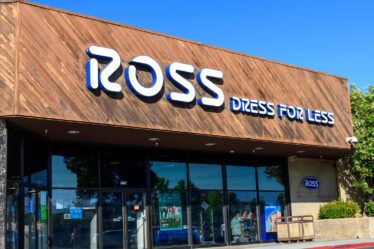
Workers rights campaigners have called for the UK’s next government to oppose the online fashion business Shein joining the FTSE, arguing that a London listing would be “yet another betrayal to working people everywhere and the planet.”
Alena Ivanova, campaigns lead at Labour Behind the Label, said it had heard the news of senior British politicians courting Shein’s £50 billion listing “with dismay” given what she claimed was a lack of transparency about its supply chain and ethical concerns.
She highlighted an investigation last month by Switzerland-based non-profit group Public Eye, which found that workers producing garments for Shein routinely work more than 70-hour weeks; exposés alleging forced labour in the Uyghur region of China; and the company’s “cavalier approach to design appropriation,” which has led to a string of lawsuits relating to allegedly copied garments.
Mathias Bolton, head of commerce at UNI Global Union, which represents service industries around the world, said: “Shein shouldn’t be rewarded with the credibility of being listed in the City, or anywhere else, given the lack of transparency in their supply chain and shocking reports of severe labour violations.”
The company, which operates largely from China, where it was founded, but is headquartered in Singapore, is rumoured to be planning to release documents outlining plans to list on the London Stock Exchange imminently.
However, reports this weekend suggested it may not attempt to join the London market until September, after the election, when a Labour administration is expected to be in power.
The campaigners voiced their concerns after the British Fashion Council, whose members include Burberry, Mulberry and Victoria Beckham’s fashion label, warned that Shein’s planned flotation on the London Stock Exchange was a “significant concern” to the industry.
Caroline Rush, the chief executive of the BFC said that if the government welcomed Shein into the British fashion community, it must commit to “greater clothing market regulation and due diligence to ensure a level playing field for all businesses in the sector.”
“Whilst we appreciate that Shein has committed to meeting acceptable industry standards, questions remain about the ethicality and sustainability of a business model and supply chain that consistently undercuts British designers and retailers,” she said in comments first reported by the Mail on Sunday.
A Shein spokesperson said it “has a zero-tolerance policy for forced labour, and we are committed to respecting human rights. We take visibility across our supply chain seriously and have invested millions of pounds in strengthening governance and compliance.”
The company said its supplier audits showed “a consistent improvement in performance and compliance,” including “improvements in ensuring that workers are compensated fairly for what they do.”
It said research carried out by third-party auditors at Shein supplier facilities in China has found that basic salaries were on average twice the local minimum wage.
Shein said it took copyright infringement seriously, adding: “It is not our intent to infringe anyone’s valid intellectual property and it is not our business model to do so.”
The company said it had published a Modern Slavery statement on its website, as required by UK law, and added: “As a global company serving customers across more than 150 countries, we believe it is healthy to attract scrutiny and transparency and we want to be held to the highest standards.”
The potential London listing of Shein is seen by some as a sign of hope for the City after a number of other major companies have chosen to list elsewhere.
The chancellor, Jeremy Hunt, met the company earlier this year, while the Labour party has indicated its support for Shein’s potential London listing, which could be the UK’s biggest ever stock market flotation.
However, some senior politicians, including three parliamentary committee chairs, have questioned the efforts to woo Shein, raising concerns about labour conditions in its supply chains.
Labour said it had talked to Shein as the party sees “raising investment, productivity and growth” as a key mission for government, and added that it expected “the highest regulatory standards and business practices from any company operating in the UK.”
By Sarah Butler
Learn more:
This Week: Waiting for the Shein IPO
The fast fashion giant is reportedly close to filing to go public in London, but faces doubts about its business and the political environment.



